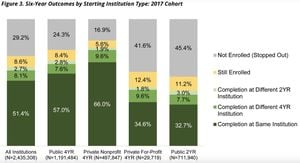Thailand's political climate has entered a phase of significant uncertainty, with various factors contributing to the current state of affairs. This analysis focuses on how recent events, economic struggles, social tensions, and the actions of political leaders are shaping the future of democracy in Thailand.
Recent elections have brought about shifts within key political parties, with the ruling party facing increasing scrutiny from opposition groups. Gaining insight from Michael Tang, an analyst at the Bangkok Post, he stated, "The political situation is fluid, and the next few months will be decisive for the future of Thai democracy." This reflection encapsulates the precariousness of the current environment.
At the forefront of this political turmoil are influential figures such as Prime Minister Srettha Thavisin and leaders of opposition parties, who are engaged in fierce battles for public support. Many citizens express disillusionment with the ruling coalition, prompting heated debates across media and public forums. According to Chulalongkorn University’s political expert, Dr. Anika Thongpraseal, “Public trust is wavering, and this will reflect on the next elections.” This sentiment resonates with the youth and first-time voters, who crave genuine representation and transparency from their leaders.
Economically, Thailand faces notable challenges. Reports indicate rising inflation levels and stark income disparities among the population, the repercussions of which echo within the political domain. Economists assert these issues are fueling the frustrations leading to protests. The aforementioned economist, Dr. Somchai Poonpol, shared, “Economic disparities are at the root of many of the protests we are seeing today.” This assertion is supported by recent data showing stagnation in wage growth juxtaposed against skyrocketing living costs.
The country has witnessed several protests calling for government accountability and reforms. These movements predominantly arise from marginalized communities and youth groups advocating for change. The social fabric of Thai society is increasingly strained, as many individuals feel sidelined by those at the helm of power.
Further complicity arises when revisiting Thailand’s historical tumult with military interventions and drastic shifts between civilian and military rule. The public’s memory of past conflicts resonates deeply as they carefully navigate the current political discourse. Activists work tirelessly, rallying citizens to participate actively rather than resigning themselves to apathy, presenting hope for reform through collective action.
While the analysts and political experts project scenarios of challenges, there remains optimism among segments of the populace. Should political leaders heed the outcry for change and inclusion, there is potential for returning stability. Progressive adaptations could be beneficial, fostering public confidence and societal trust.
The upcoming months are set to be turbulent, according to commentators observing the political trends. The government will need to address pressing economic issues, counter public discontent, and shore up relationships with both allies and adversaries. A failure to do so could lead to intensified protests and calls for reforms.
With elections approaching, it’s imperative for leaders to engage actively with the populace, enhancing the dynamics of representative democracy to resonate with the aspirations of citizens. The political crossroads faced by Thailand serve as both a warning and an opportunity—illustrative of the need for transparency, engagement, and genuine concern for the populace’s welfare.



